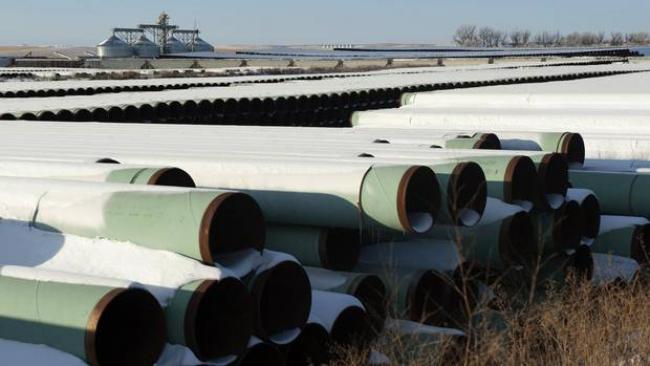Articles Menu

~~Legal observers say that while TransCanada Corp. appears to have a strong case under the North American free-trade agreement to challenge Washington’s rejection of its Keystone XL pipeline, the Calgary-based company has just embarked on a long-haul process in which it remains an underdog.
The United States has never lost a case launched by a Canadian or Mexican company in the 22 years since the dawn of NAFTA, which allows foreign investors from the treaty’s signatories to sue governments for decisions they claim discriminate against them. More than a dozen Canadian companies have tried over the years to challenge the United States under the trade deal.
Plus, TransCanada’s NAFTA challenge is likely to fire up criticism in the United States – particularly in the environmental movement that fought Keystone XL – of this kind of clause, now common in other international trade agreements, that allows foreign investors a special right to challenge government decisions.
At least two similar, but much lower profile, current NAFTA claims by U.S. companies target Canadian government actions on the environment, including one brought by an U.S. oil-and-gas company objecting to Quebec’s St. Lawrence River fracking ban.
Trade lawyers say that TransCanada, which is demanding $15-billion in compensation, appears to have a good case.
The company’s legal team is led by Washington-based Stanimir Alexandrov, a former vice-minister of foreign affairs for Bulgaria and a partner with Sidley Austin LLP, an elite firm in the world of international arbitration.
TransCanada argues that the seven-year delay and ultimate rejection of its pipeline in November by U.S. President Barack Obama were the result of political pressure, and not based on the merits of the company’s project.
It argues that the administration stalled the project as opposition grew and announced its decision to kill it in November despite the U.S. State Department’s reviews of the pipeline, which concluded that it would not result in “increased consumption and production of crude oil” or “significantly increase” greenhouse-gas emissions.
The United States approved other similar but lower-profile pipeline projects, the company argues, meaning that the quashing of Keystone XL should be declared a violation of NAFTA’s provisions that foreign and domestic investors must be treated fairly and equally.
An Obama administration spokesman said on Thursday that the government had acted lawfully and that its decision was consistent with U.S. obligations under NAFTA.
Lawrence Herman, a Toronto trade lawyer and former Canadian diplomat, said TransCanada looks strong out of the gate. He said the United States will have to argue that other pipeline decisions were somehow different from the one on Keystone XL, with the issue of the environmental effect of Alberta’s oil-sands bitumen likely a crucial part of the case.
But it could be two years before any hearing on the TransCanada case takes place, meaning that the NAFTA challenge could also be overtaken by a reversal of Mr. Obama’s decision by the next U.S. president.
The NAFTA claim keeps alive what was already a lengthy and spiralling saga. While TransCanada filed a 28-page notice of intent this week laying out its case, it will not file its formal claim until the spring. Each side must nominate one arbitrator, with the pair then agreeing on a third arbitrator to constitute the panel that will hear the case.
One reason that may partly account for Washington’s undefeated record in NAFTA proceedings is this process for choosing arbitrators, argued Gus Van Harten, an associate professor at York University’s Osgoodge Hall Law School in Toronto. If the two sides cannot agree on a third arbitrator, the World Bank – whose president is effectively appointed by the United States – steps in and appoints one, he said.